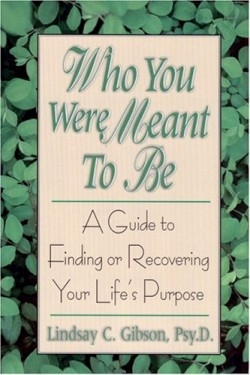Who You Were Meant to Be
A Guide to Finding or Recovering Your Life's Purpose
At the beginning of her work on revitalizing the self, Gibson writes, “There is nothing you can do about what interests you or energizes you. It is simply who you are. Trying to change this, not accepting this, will always result in a tiring, frustrating struggle.”
After providing a few real life examples from her therapy practice, the author launches wholeheartedly into self-help mode; not the type of self-help routine that’s frequently scorned by professionals and leaves readers wondering why they spent money on something they already know, but the type that aims to truly aid the reader in psychological and emotional improvement. Not content to deliver her message in one or two ways, Gibson employs a variety of methods to get the reader thinking about what constitutes individual happiness and how to chart a course to get there.
She weaves together tales from her practice, predominantly about wistful young women who can’t seem to feel content about anything, with checklists, quizzes, an ego’s guide to survival, and sometimes even some tough love kind of straight talk. For example, for those who may have less than uplifting friendships, Gibson writes, “If you come away from a contact with someone feeling drained and less interested in doing things, you have been in the wrong place for your true self.”
While she encourages taking positive steps in every arena, from work to friendships, to live out one’s dreams, Gibson is also realistic about the obstacles that can block the path, and gives good advice about changing self-created negative perceptions, realizing the need for a good support system of friends and family, and recognizing the pragmatic details that may arise, like money and time concerns.
The combination of examples and no-nonsense psychological tools keeps the book fresh and compelling, and Gibson’s enthusiasm and optimism are contagious, making her seem like the type of therapist cheerleader needed by anyone who’s feeling less than self-confident about their life’s direction.
Reviewed by
Elizabeth Millard
Disclosure: This article is not an endorsement, but a review. The publisher of this book provided free copies of the book to have their book reviewed by a professional reviewer. No fee was paid by the publisher for this review. Foreword Reviews only recommends books that we love. Foreword Magazine, Inc. is disclosing this in accordance with the Federal Trade Commission’s 16 CFR, Part 255.

